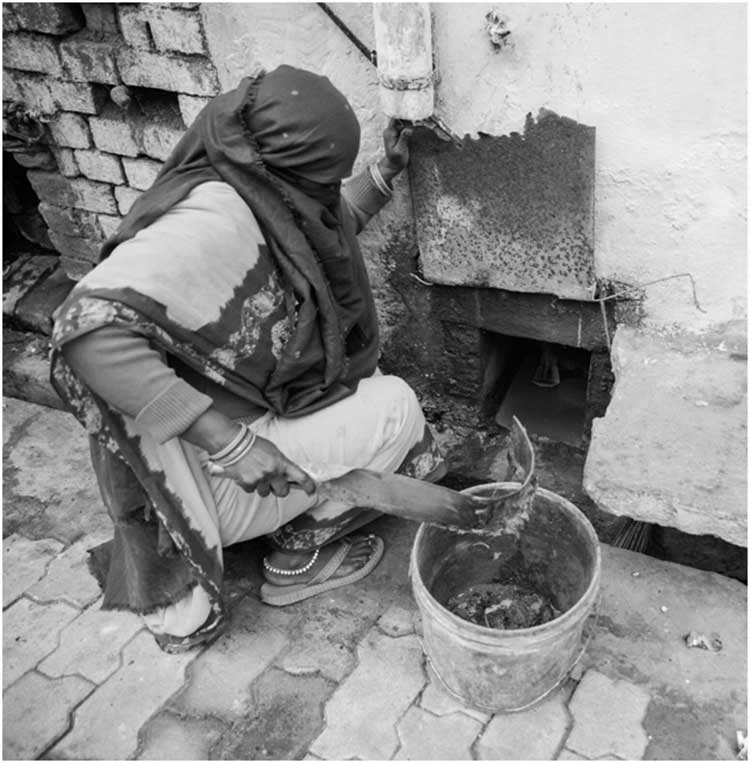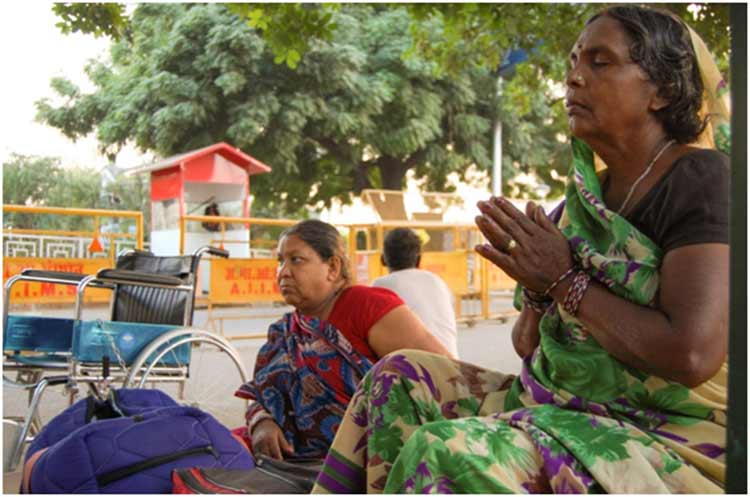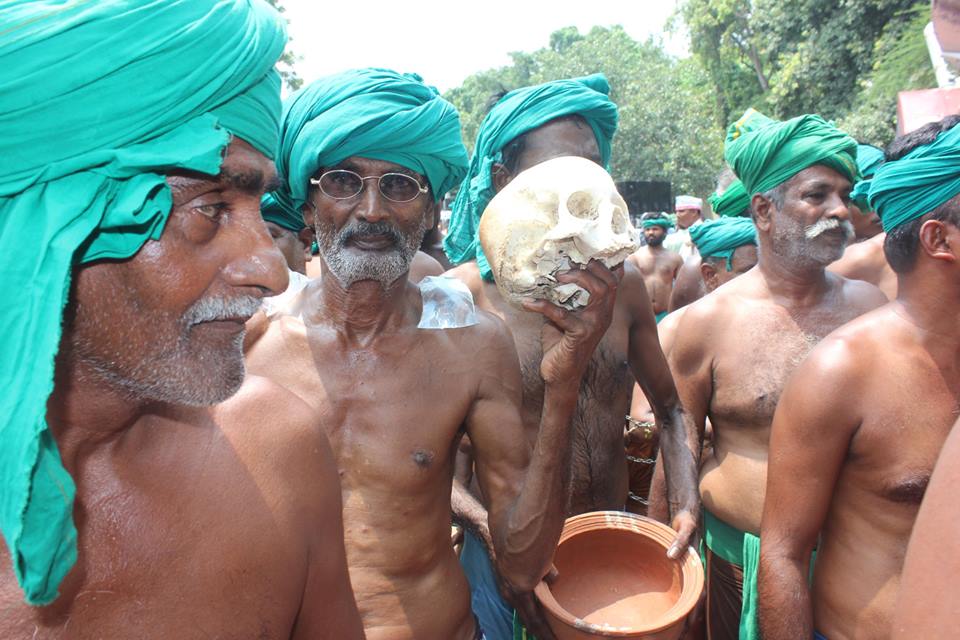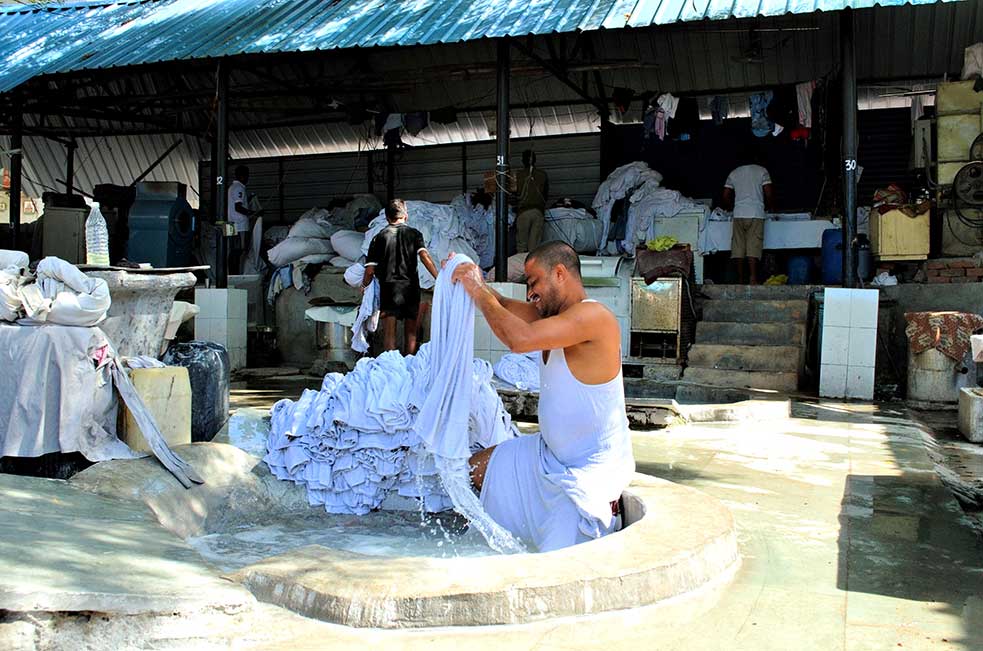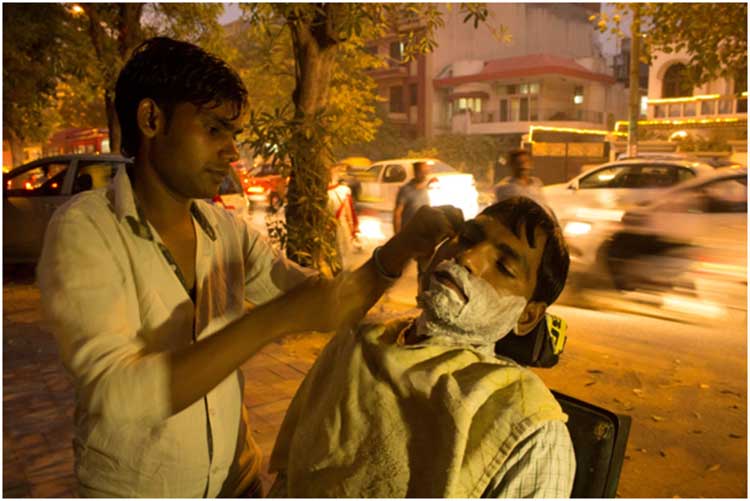Marriages in India are considered to be a sacrosanct social institution. Amid the glitz and the glitter of the wedding are men, whose music has become entwined with the wedding affair, the band wallahs. But who are these men, whose job is to be perpetual celebrants on behalf of other people. What kind of existence do these band wallahs lead?
This photo essay is an attempt to document the lives of these band wallahs, behind whose loud music, lays a very quiet world.
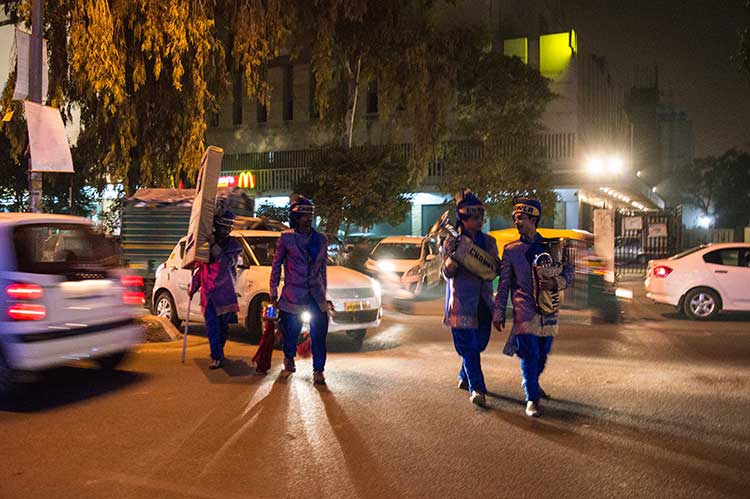
Making his way through the traffic, he waits for the cars to come to a complete halt, a long ribbon of taillights flashing red and white. The golden embellishments on his Indigo-coloured kurta make him stand out amid the glaring lights. Curious onlookers gaze as he marches on, carefully tucking in a brass trumpet under his arm.
“Burr burr!”
The children on the street call out to him, imitating the sound of the trumpet. At first, he appears to look ruffled, but nonchalance soon takes over, his expressions betraying a familiarity to remarks like these.
Babloo, a 35-year-old, is a trumpeter with the famous Chawla Band in Delhi. He has worked with several bands during the last ten years of his stay in the city.
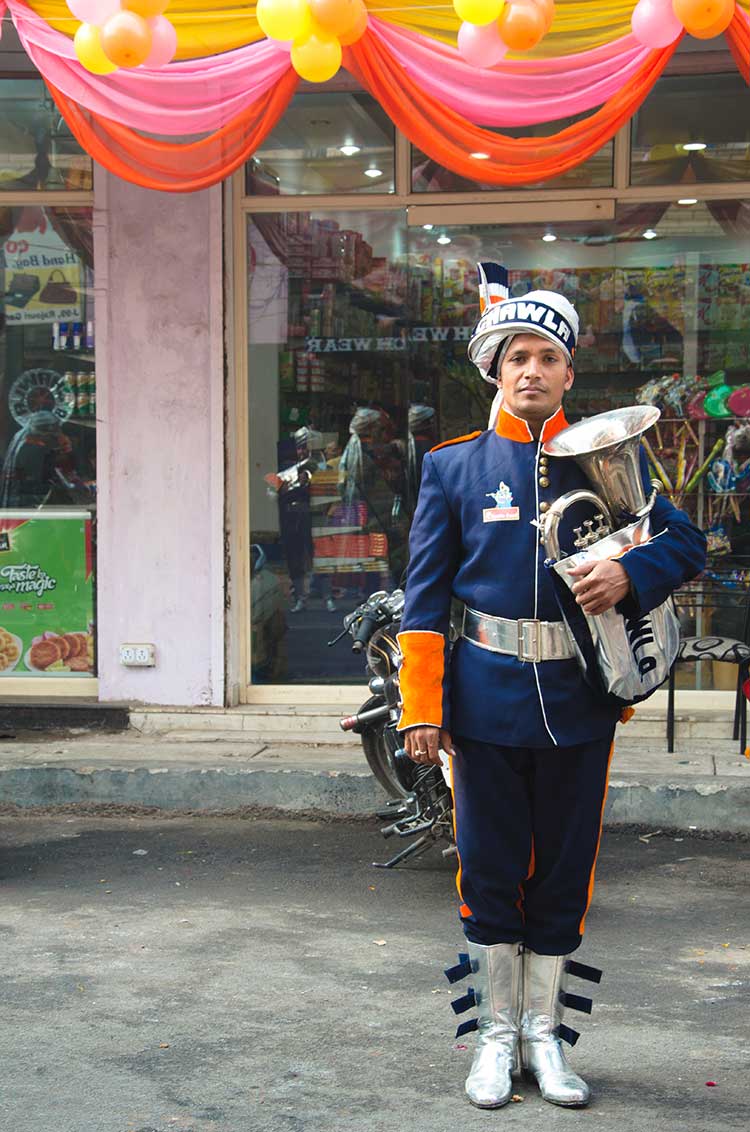
“From the time I can remember, my family has been into playing music for weddings. I decided to continue the tradition and received training from my elder brother.” says Babloo, a native of Uttar Pradesh’s Rampur district.
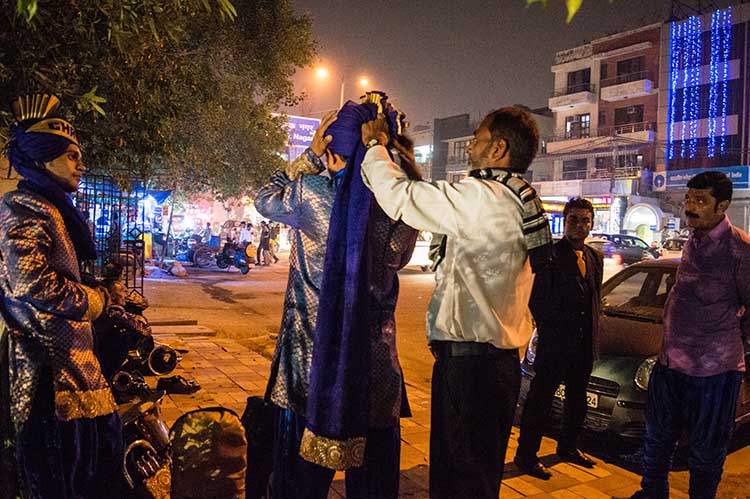
For Babloo and other band wallahs like him, life has become entwined with the wedding affair. Dressed in eye-catching livery, band baja wallahs are an inescapable sight during wedding processions.
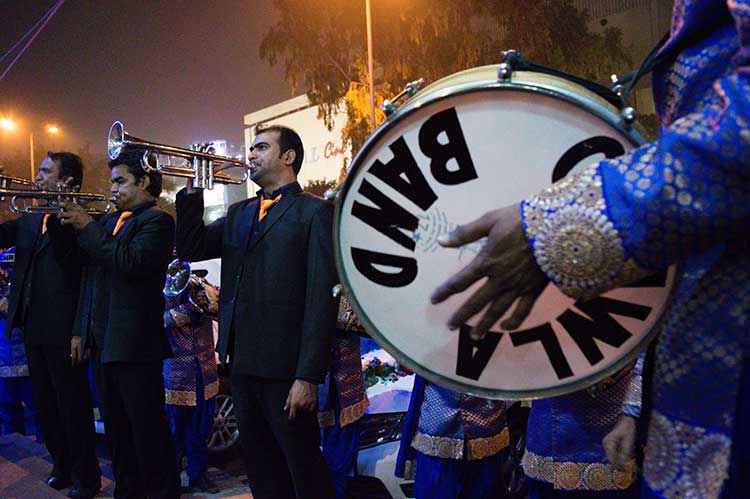
The presence of these band wallahs at weddings is considered auspicious and is perceived by many as indicative of social status.
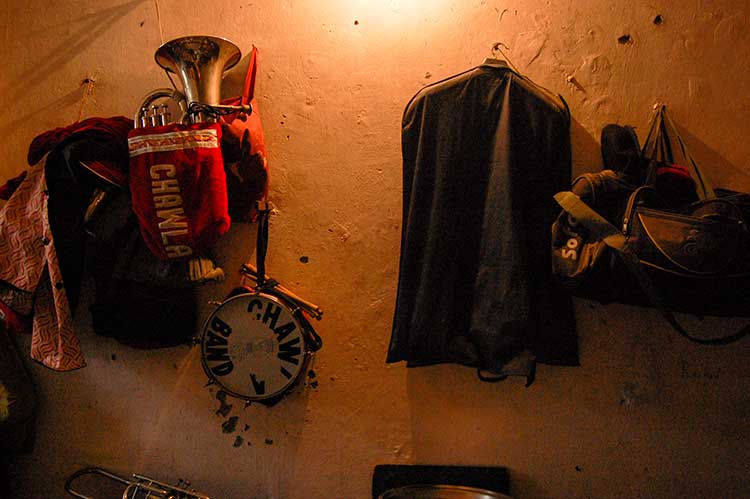
Most of these men migrate to cities from far-flung villages of Uttar Pradesh and Uttrakhand in search of better lives. Living in cramped one-room spaces with 15-20 members, these men toil hard to make enough money to sustain themselves, maybe send a little home.
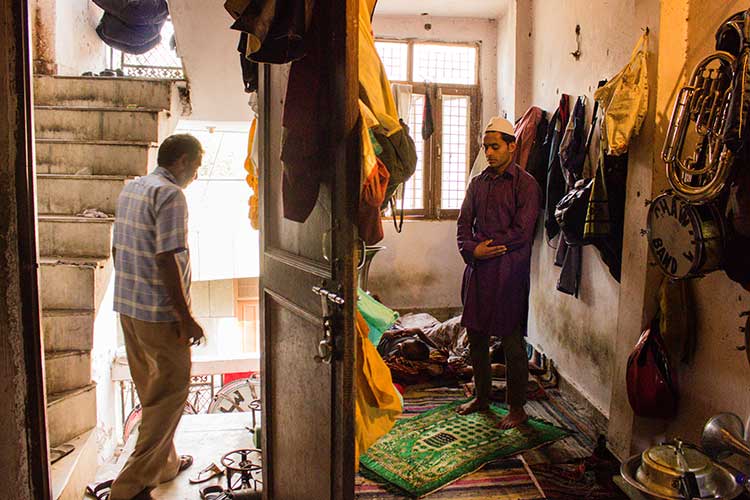
A band member can make anywhere between Rs 10,000-Rs 16,000 per month depending on his skills and talent.
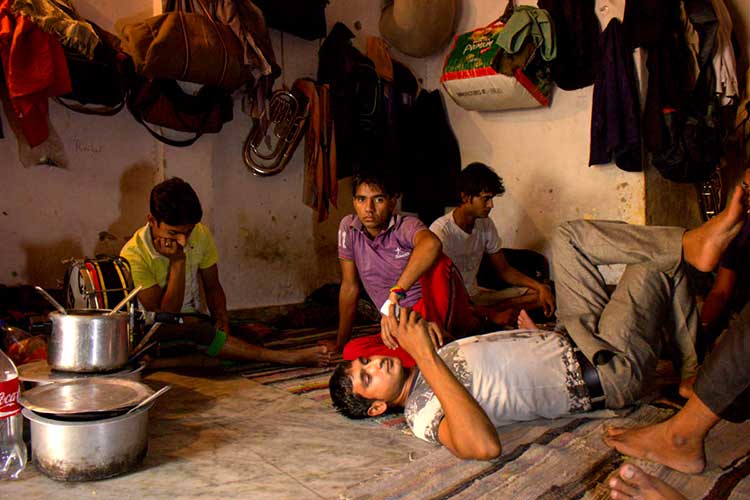
Photo courtesy: Sadia Akhtar
Their days are spent within the confines of grimy walls, yearning for their family. As the evening approaches, the band wallahs, dressed in full regalia reach the venue from where the wedding procession has to start. Sometimes waiting endlessly for the groom’s family to gather. They often have to travel long distances with heavy musical instruments. While bigger band companies provide conveyance, there are small bands whose members have to rely on public transport.
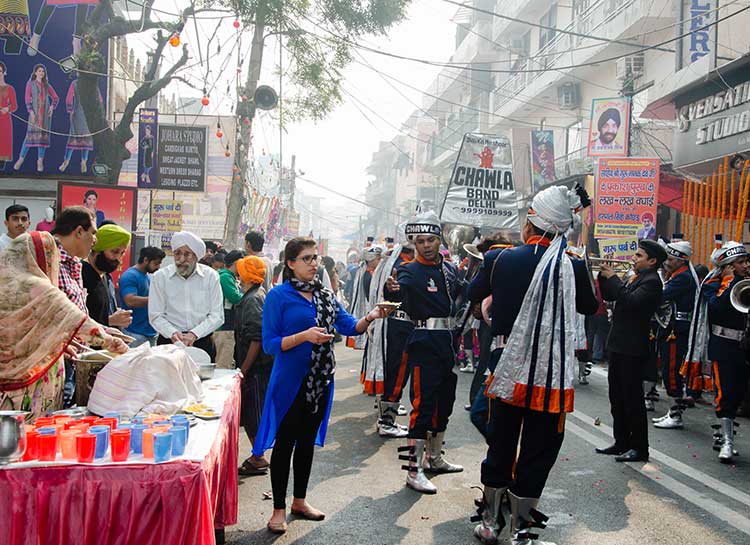
Once an indispensable part of celebrations, the band wallahs are struggling to stay afloat with changing times. The arrival of DJs and recorded music has pushed them to the brink. Moreover, low pay, erratic working hours, and the social stigma attached to the profession has fuelled dissatisfaction among the band wallahs.
“Earlier, we had only the bands. People now prefer to go with DJ or Dhol because of which our business has taken a hit,” says Mohammad Guddu, a contractor with a band in Delhi.
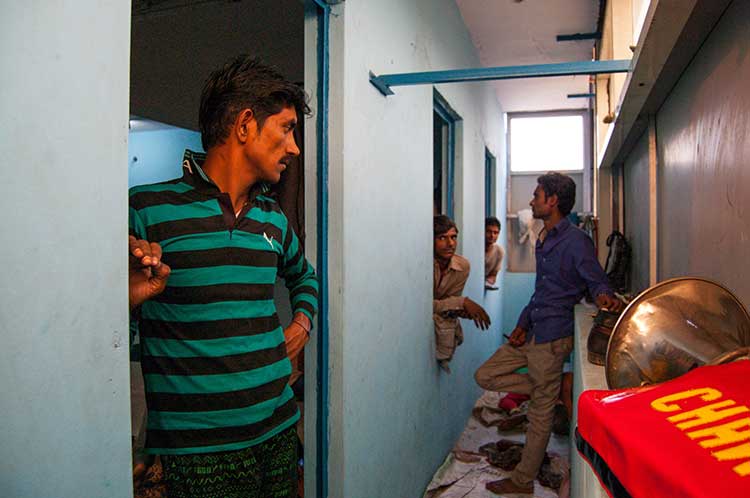
As a contractor, he acts as the channel between the band owner and the members. A skilled musician himself, he doesn’t mind playing the drum, if a need arises.
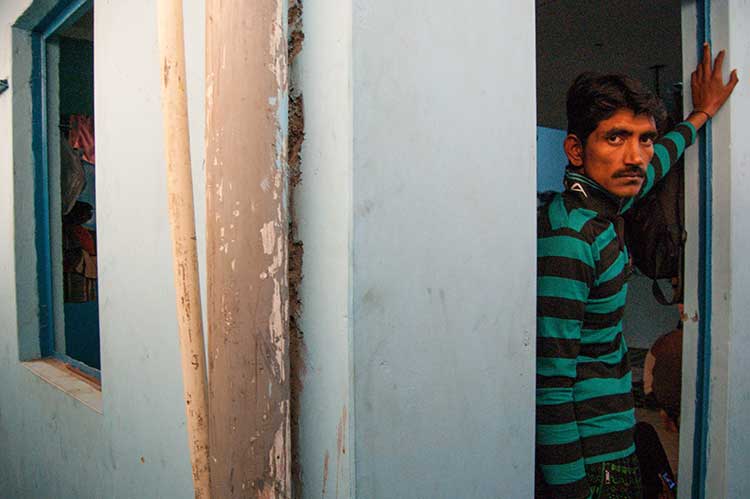
Recalling his reason for joining the profession, he says: “I had to drop out of school because of family issues and started assisting my father. My father is getting old; he wants the profession to survive him and has asked me to carry forward his legacy,”
When asked if he would want his children to continue in his footsteps, he answers with a blunt no. “I would never want my children to enter this profession. There is no future here. People ridicule us. There is no respect.” he laments.
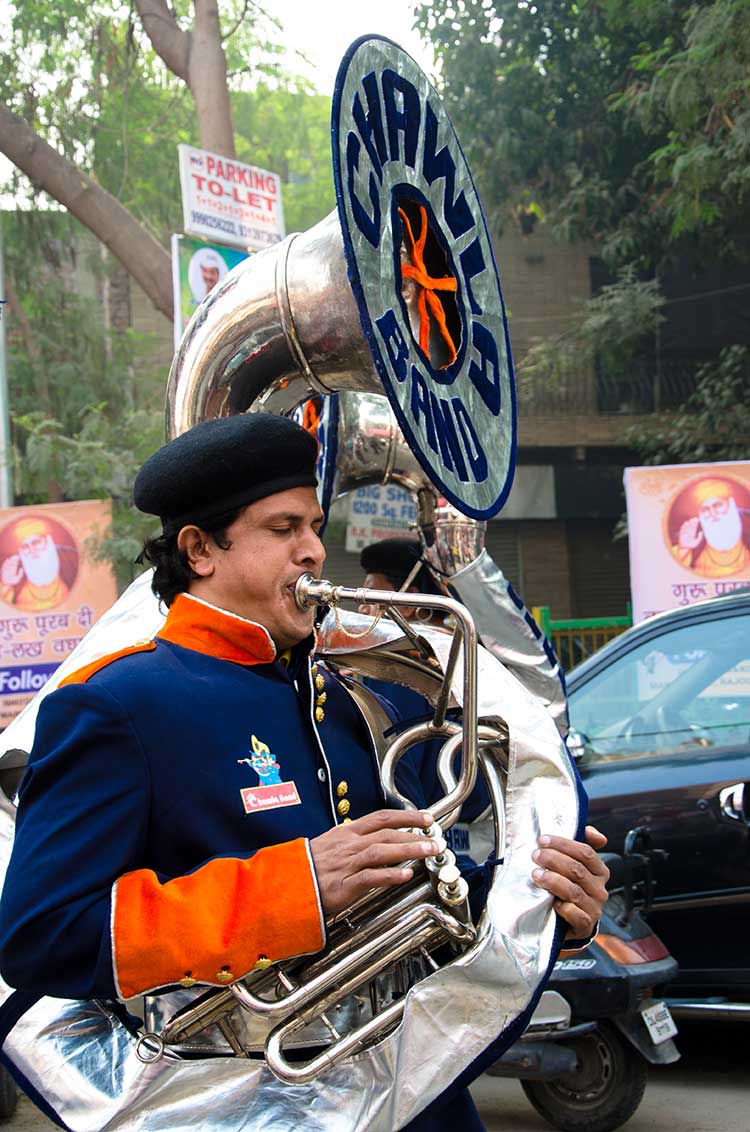
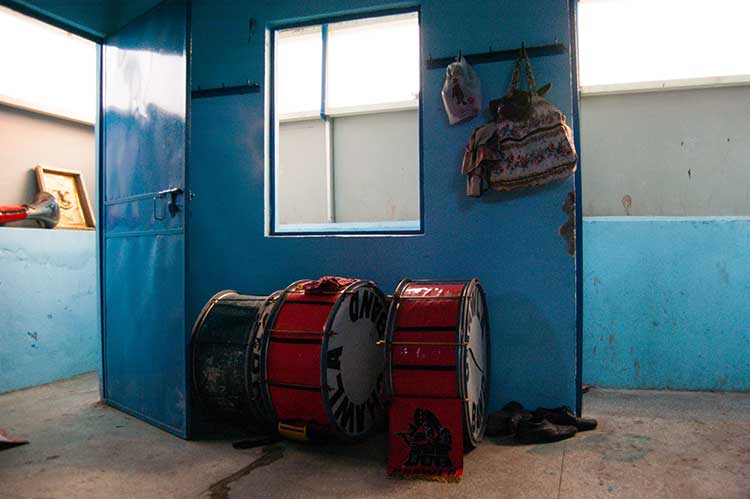
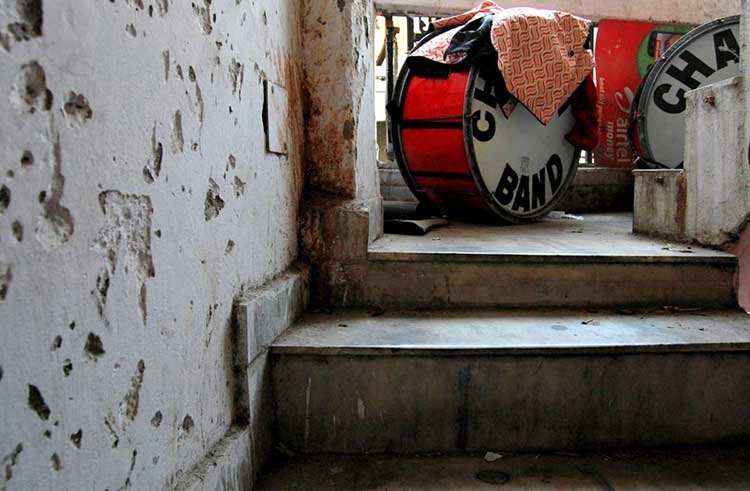
Sadia Akhtar is a freelance journalist based out of New Delhi.

